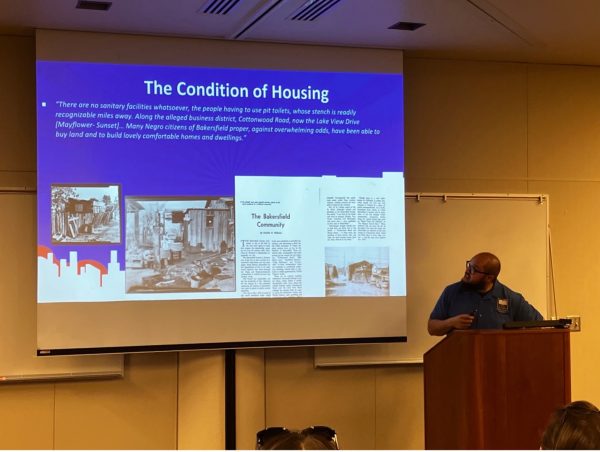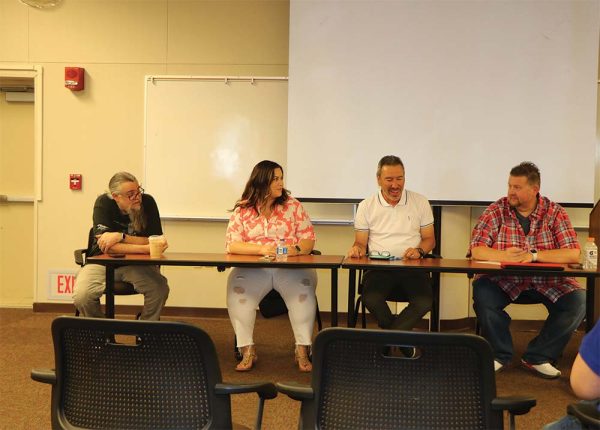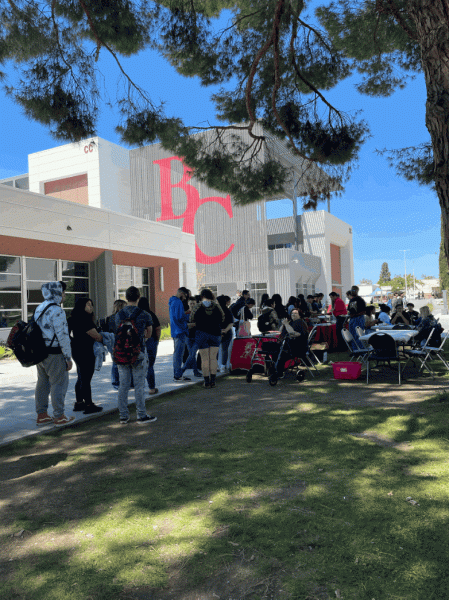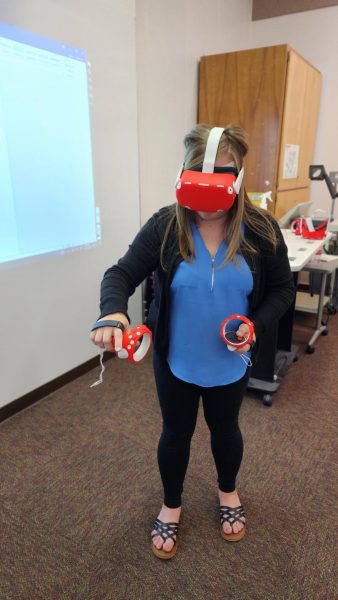The Kegley Institute of Ethics at CSUB hosted a webinar about the importance of monuments
Professor Michelle Moody-Adams discussing the importance of monuments during the CSUB webinar.
March 17, 2021
The Kegley Institute of Ethics hosted a CSUB webinar via Zoom with the professor of political philosophy and legal theory at Columbia University, Michelle Moody-Adams, on March 11.
The webinar covered the topic of monuments and the reasons why they are created. The guest speaker, Michelle Moody-Adams, spoke about notable monuments in the United States, what monuments are meant to do, and what qualifies to receive and preserve monuments.
Adams stated, “Societies, like individuals, often need a sense of a relatively stable identity through time.” She then explained one of the ways to establish that identity is through a monument.
Adams said monuments are often made to remember past achievements and celebrate beginnings and occasionally endings. Adams mentioned the Washington Monument to help explain that while it celebrates the beginning of the United States’ formal government, it can also be said to celebrate the end of Washington’s life and his achievements. She also added that monuments do not have to be built, they can also be products of nature.
Adams then shifted to what merits she believes should be met when creating or preserving a monument. “Create only those monuments and memorials that preserve memory without limiting our ability to constructively reimagine society,” Adams stated. “Preserve only all those monuments and memorials that embody and promote fundamental democratic values.”
A series of questions that need to be answered before a monument is created was listed by Adams as a topic during the webinar. The questions ranged from if the story was true or false, who does it celebrate or denigrate, and if the monument would strengthen a story that is dangerous.
She then used confederate monuments as an example of monuments that do not meet the criteria of a monument that should be created or preserved. She explained the confederate monuments not only strengthen a story that is dangerous and falsifies the history of the Civil War but also does not embody U.S. democratic values.
“It’s very hard to understand how you can extract these monuments from this narrative given that at every major juncture of American history where it comes up these monuments show that they are focal points for memory and celebration of white supremacist violence,” Adams explained.
Adams closed by quoting philosopher William James at the dedication of the Memorial to Robert Shaw and the 54th Regiment, stating it was a “noble work of bronze.”











